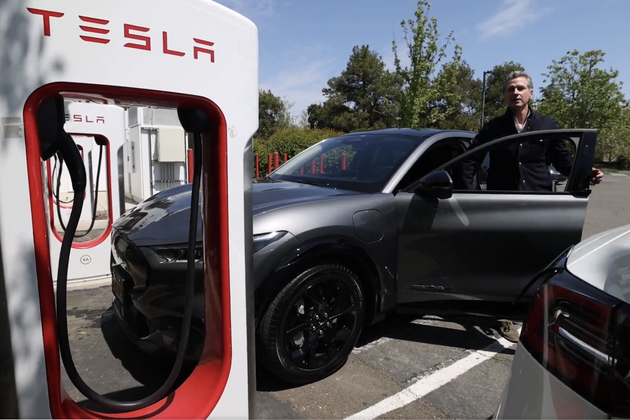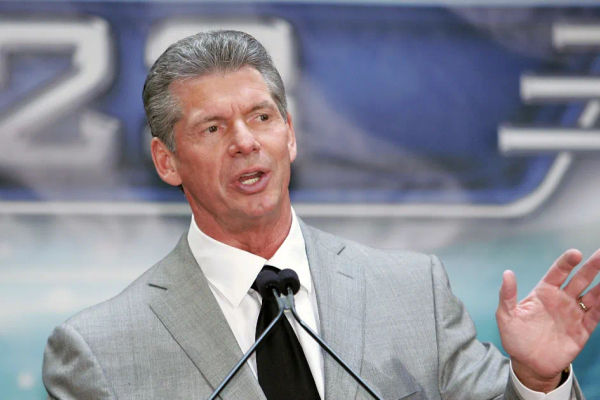EV Mandate Opposition: Car Dealers Remain Unconvinced

Table of Contents
High Initial Investment Costs for Dealerships
The shift to EVs demands substantial upfront investment from car dealerships, creating a significant barrier for many. Adapting to this new technology requires considerable financial resources, impacting both large and small businesses, but disproportionately affecting the latter. The costs involved include:
-
Specialized training for mechanics: EV repair requires specialized knowledge and tools, demanding extensive training for existing mechanics, and potentially the hiring of new, specialized staff. This training is expensive and time-consuming.
-
Investment in new charging infrastructure and equipment: Dealerships need to invest in installing charging stations, both fast-charging and level 2 chargers, to cater to EV customers. This infrastructure investment is significant, involving not only the purchase of equipment but also potentially costly upgrades to the dealership's electrical grid.
-
Modifications to existing showrooms and service bays: EVs often have different service requirements compared to gasoline-powered vehicles, necessitating modifications to service bays and potentially even showroom layouts. This can involve costly renovations and disruption to business operations.
The sheer cost of these investments is substantial, with estimates suggesting hundreds of thousands of dollars per dealership, creating a significant financial burden, particularly for smaller, independent dealerships. This disparity in financial capacity exacerbates the challenges of the EV transition within the automotive industry and contributes significantly to EV infrastructure investment concerns.
Consumer Demand and Market Readiness Concerns
Another critical element fueling EV mandate opposition is the disparity between government targets for EV adoption and the current level of consumer demand. While governments push for rapid transitions, the reality on the ground reveals significant consumer hesitancy. Key concerns hindering broader EV adoption include:
-
Range anxiety: Consumers remain worried about the driving range of EVs, especially in areas with limited charging infrastructure. The fear of running out of charge before reaching a charging station remains a significant barrier.
-
Charging infrastructure limitations: The lack of a sufficiently widespread and reliable charging network continues to be a major impediment. Uneven distribution, particularly outside of urban areas, limits the practicality of EVs for many consumers.
-
Higher purchase prices of EVs: Currently, EVs are generally more expensive than comparable gasoline-powered vehicles. This price difference acts as a significant deterrent for many potential buyers, especially during economic uncertainty.
Dealerships argue that these factors demonstrate the current market is not yet ready for the aggressive timelines set by many EV mandates. They believe these mandates are premature, risking the financial viability of dealerships that invest heavily in EV infrastructure before sufficient consumer demand emerges. The current slow EV adoption rate underscores this apprehension regarding the electric vehicle market.
Lack of Government Support and Transition Plans
Dealerships also express considerable concern regarding the lack of adequate government support to facilitate a smooth transition to EVs. The absence of robust support mechanisms exacerbates the challenges they face, creating uncertainty and undermining investment confidence. Issues include:
-
Insufficient incentives for consumers to buy EVs: Many feel that current consumer incentives, such as tax credits, are inadequate to offset the higher purchase price of EVs and fully stimulate demand.
-
Lack of clear guidelines and support for dealership adaptation: Dealerships need clear guidelines and support from governments to navigate the complexities of EV infrastructure installation, training programs, and the overall adaptation process.
-
Uncertainty about future regulations and policies: The rapidly evolving regulatory landscape surrounding EVs creates uncertainty and makes long-term investment planning extremely difficult for dealerships.
The Impact on Rural Dealerships and the Workforce
The impact of EV mandates is particularly acute for smaller, rural dealerships. These dealerships often lack the financial resources to make the necessary investments in infrastructure and training. The resulting strain could lead to closures and job losses, significantly impacting the automotive industry workforce, and especially the rural economy. This disproportionate impact on rural dealerships highlights the need for targeted support programs focusing on the unique challenges they face in this EV workforce transition.
Conclusion
The opposition to EV mandates from car dealerships stems from a confluence of factors: high upfront costs for adapting to EVs, concerns about insufficient consumer demand and market readiness, and the lack of comprehensive government support. Addressing these concerns is paramount to achieving a successful and equitable transition. A more balanced and collaborative approach is needed, one that takes into account the practical challenges faced by the car dealership industry. Addressing the concerns surrounding EV mandate opposition is crucial for a successful transition to electric vehicles. Open dialogue between policymakers, manufacturers, and dealerships is essential to create a sustainable and equitable pathway towards a greener future, ensuring the viability of the entire automotive sector in this process.

Featured Posts
-
 Nestor Cortes Strong Return Leads To Reds Third Straight Loss
Apr 23, 2025
Nestor Cortes Strong Return Leads To Reds Third Straight Loss
Apr 23, 2025 -
 Ftcs Case Against Meta Instagram Whats App And The Ongoing Legal Battle
Apr 23, 2025
Ftcs Case Against Meta Instagram Whats App And The Ongoing Legal Battle
Apr 23, 2025 -
 Aaron Judges 3 Hrs Lead Yankees To 9 Homer Game
Apr 23, 2025
Aaron Judges 3 Hrs Lead Yankees To 9 Homer Game
Apr 23, 2025 -
 77 Inch Lg C3 Oled Why Its My Favorite Tv
Apr 23, 2025
77 Inch Lg C3 Oled Why Its My Favorite Tv
Apr 23, 2025 -
 Boosting Ontarios Economy New Initiatives For Alcohol And Labour Mobility
Apr 23, 2025
Boosting Ontarios Economy New Initiatives For Alcohol And Labour Mobility
Apr 23, 2025
Latest Posts
-
 Otkaz Makrona Starmera Mertsa I Tuska Ot Poezdki V Kiev 9 Maya Prichiny I Posledstviya
May 10, 2025
Otkaz Makrona Starmera Mertsa I Tuska Ot Poezdki V Kiev 9 Maya Prichiny I Posledstviya
May 10, 2025 -
 Elections Municipales Dijon 2026 Ambitions Ecologistes
May 10, 2025
Elections Municipales Dijon 2026 Ambitions Ecologistes
May 10, 2025 -
 Proces Pour Violences Conjugales A Dijon L Affaire Bilel Latreche
May 10, 2025
Proces Pour Violences Conjugales A Dijon L Affaire Bilel Latreche
May 10, 2025 -
 Dijon Un Boxeur Convoque Au Tribunal Pour Violences Conjugales
May 10, 2025
Dijon Un Boxeur Convoque Au Tribunal Pour Violences Conjugales
May 10, 2025 -
 Violences Conjugales A Dijon Le Proces De Bilel Latreche En Aout
May 10, 2025
Violences Conjugales A Dijon Le Proces De Bilel Latreche En Aout
May 10, 2025
